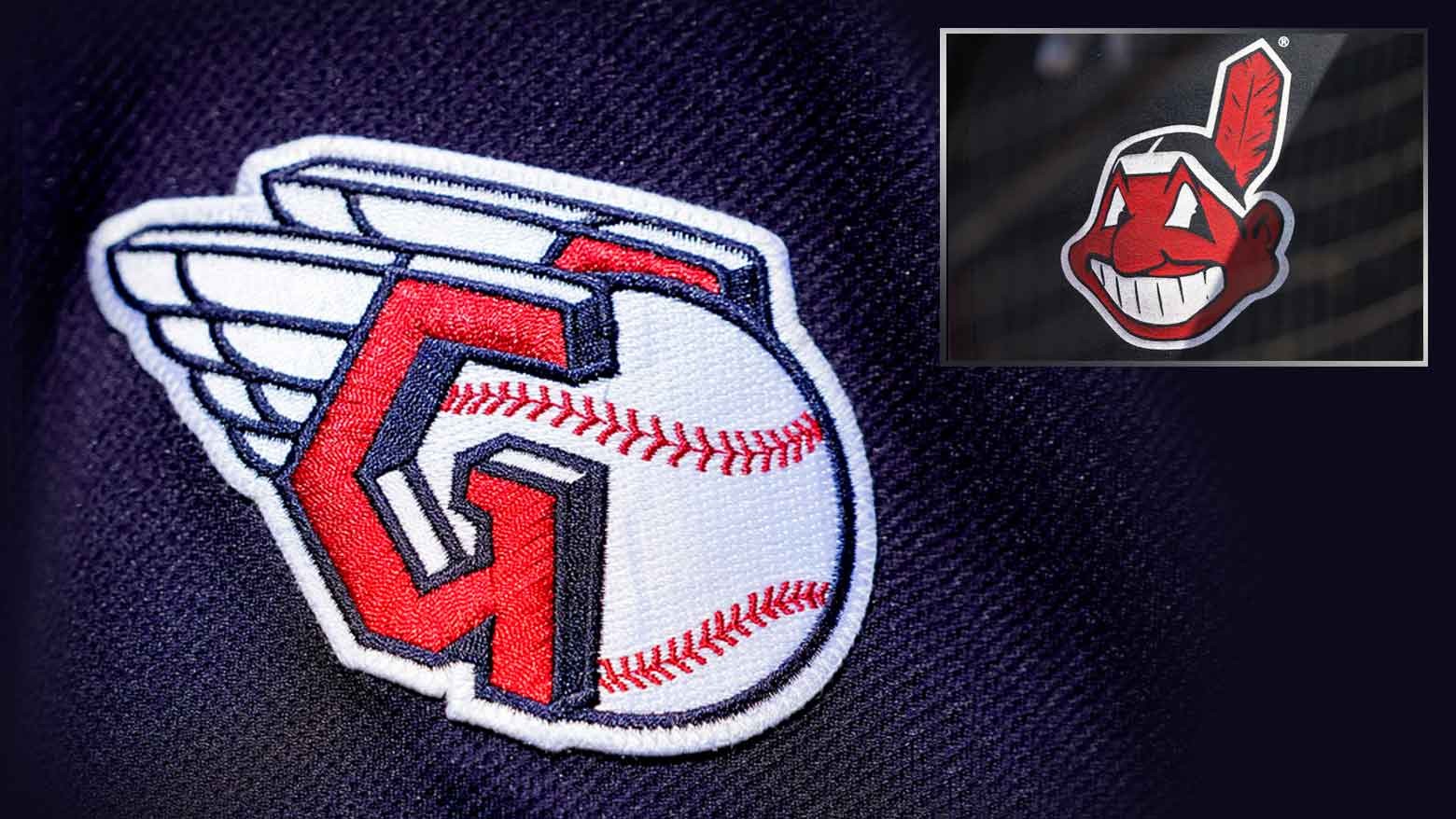As Cleveland baseball fans thronged the gates of Progressive Field for their team's first appearance in the American League Divisional Series since 2018, they were reminded of the first time they stepped foot in the stadium on opening day back in April. Those inside made their way to their seats and turned their attention to the field. They watched Tom Hanks throw out the ceremonial first pitch, and cheered as the home team was announced for the first time in 2022. In moments, the familiar sounds of the crack of a bat, the roar of the crowd, and the melodies of the organ would be heard echoing through the grounds.
But one announcement that ran through the speakers was something that no one had ever heard before. No longer was the Major League Baseball team from Cleveland known as the Indians, which had been their name for longer than any fan could remember. Instead, the announcer bellowed: "Here are your Cleveland Guardians!"
After 106 years, Cleveland's baseball team had rebranded itself.
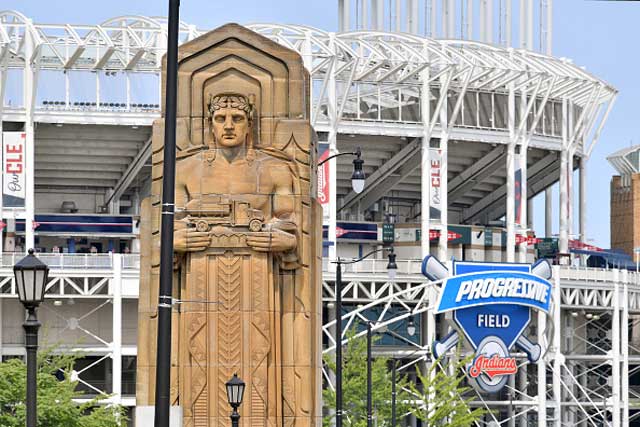
Controversy in Cleveland
Despite its longevity, the Indians name had always been viewed as insensitive and offensive to members of the Native American community; the team's logo, a caricature known as Chief Wahoo, drew particular scorn. Protesters have gathered at every home opener since 1970, and for the last nearly 20 years, an activist named Sundance has led the demonstrations.
The Ohio-born Sundance began agitating for Indigenous rights after facing discrimination in his hometown of Oberlin. Back in the early 2000's, the town's sports teams were also called the Indians, which gave free license, he says, for hostile people to confront him with racial slurs and other abuse. He worked to change the name so that his son would not be raised in such a hostile environment. Those efforts eventually led to an association with the Cleveland American Indian Movement, and he began taking part in the opening day protests -- where, he recalls, he would face the same racist comments, but now rather openly.

Sundance says that the Indians' name and logo are, simply, exploitative. He points out that the Cleveland area had no Native American population when the name was coined in a newspaper cartoon more than 100 years ago.
"Anyone looking at that half-page cartoon would not get the impression that indigenous people are being honored," he says. "What they would get the impression of… is that native people were only valuable insofar as we could impart our 'Indian magic' to the team to make them a winning team."
Changes in the wind
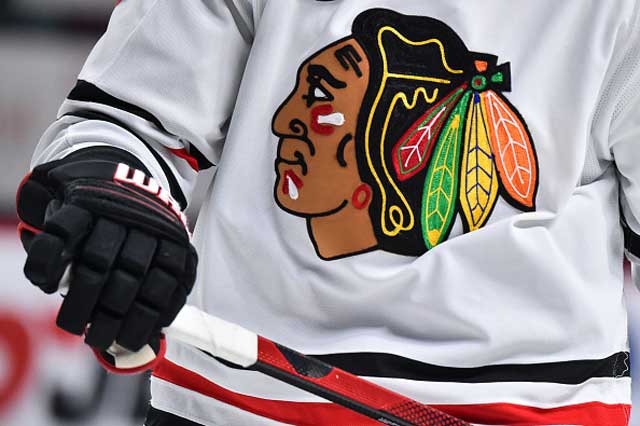
So what took the organization so long to make the change? The issue, as is so often the case, came down to money -- in particular, team merchandise.
"The selling of something that has an Indian head on it, that's a hot item," Sundance says.
The same is true throughout the US sports landscape. The Kansas City Chiefs (football), Chicago Blackhawks (hockey), and Atlanta Braves (baseball) are just a few of the teams with Native American logos. Braves fans even cheer on their team with a ritual called The Chop, in which they pretend to swing a tomahawk while chanting an indigenous "song."
But just as money makes Native American names and logos appealing, it can also force teams to rebrand themselves.
After the 2019-2020 football season, the owner of the Washington Redskins announced plans for a change. For two years, the team played under a generic name -- the Washington Football Team -- while the organization figured out a new one. This season, they debuted as the Washington Commanders.
One of the driving forces behind the change was the shipping giant FedEx, which had paid for the rights to name the team's stadium. According to Sundance, a similar appeal from Progressive insurance company had an impact on the owners of the Cleveland baseball team.
Impact of Black Lives Matter
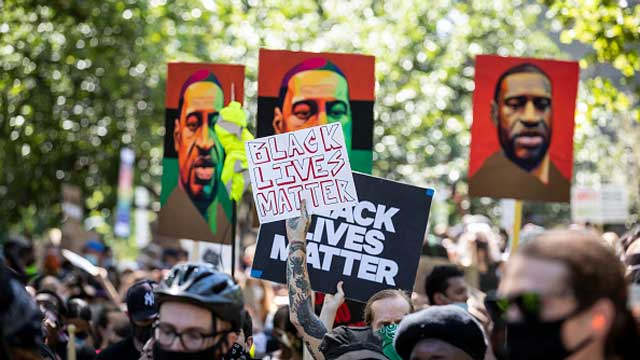
The team-naming issue can be seen as part of the broader drive for social justice that was energized by the 2020 killing of George Floyd, an unarmed black man, by a white police officer. The Black Lives Matter movement has prompted companies and organizations to become more sensitive and thoughtful in their approach, and to question what is socially (un)acceptable.
"Those two episodes would not even be possible had it not been for the [Floyd killing], Sundance says, referring to the rebranding of the Guardians and Commanders. "We're talking about the change being an outcome of the death of a person of color."
That said, the fact that sports teams only acted in the wake of the BLM protests highlights a sad reality for the Native American community: "The change happened in spite of our activism," Sundance says.
Indeed, Native Americans have always had a difficult time making themselves heard. In addition to suffering disproportionately poor social and health outcomes, they also have the lowest life expectancy and are twice as likely as the next ethnicity to be assaulted by someone who is not native. And they are the least educated and poorest ethnic group.
Therein lies the crux of the problem. Because of their lack of purchasing power, Native Americans are unable to pressure companies for any real change. And that lack of pressure translates to a lack of consideration for the concerns that are important to their community.
"It's hard for me to talk to people…in Cleveland about the issues that we face, because once you start mentioning Indians, you see their eyes glaze over," Sundance says. "They're thinking about the sports team. They're thinking about that one memory they had from their childhood when they went to the stadium. They're not thinking about us."
Fan reaction
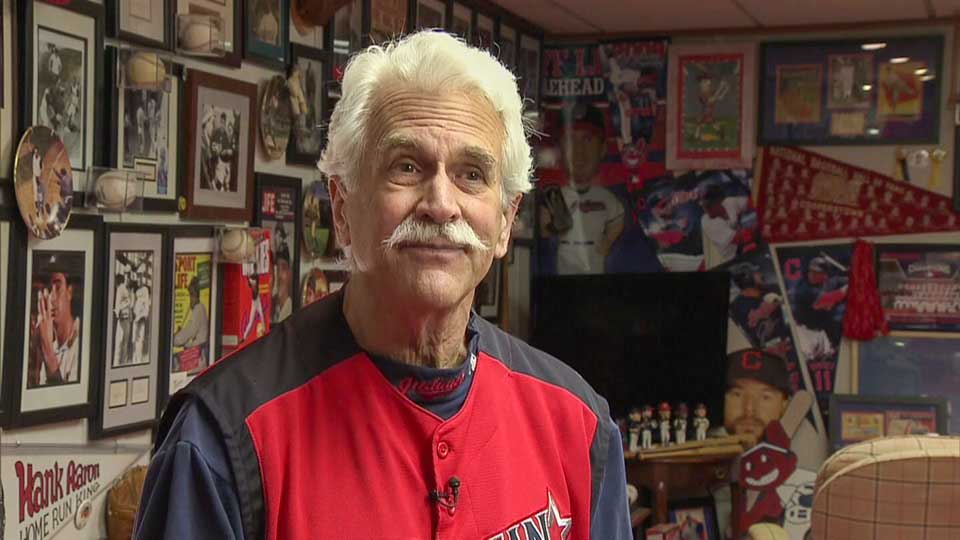
The reaction to the Cleveland team's name change has been, predictably, mixed. Most notably, former President Donald Trump criticized the organization, calling the decision a "disgrace" and guaranteeing (without evidence) that the people most upset by it were Native Americans.
But while many traditionalists may be bitter about the change, the majority of fans seem to have accepted it as something positive. Even before the team played a single game, many of the people lining up at the gates for the home opener were wearing some sort of Guardians gear.
Jess Ennis, a self-described Cleveland superfan who has attended games for almost 60 years, hasn't yet come to love the new name, but he understands and accepts it.
"When you look at the history of this country and the Europeans who came, they completely exploited the natives who were living here, treated them as less than human," he says. "It's a tragedy of this country that gets swept under the rug."
Other fans echoed that sentiment. They like the inclusivity of the new name, and with the Guardians' roster of fresh, young talent, they think it goes well with the feeling of a new era.
And yet, much work still needs to be done. While professional and college sports teams are doing away with Native American names, logos, and mascots, elementary and secondary schools still use them for their teams. Lawmakers in the House of Representatives have introduced a bill to encourage schools to move away from these mascots. Until such a law passes, Sundance will be at the front lines, pushing for the right to equal treatment.
